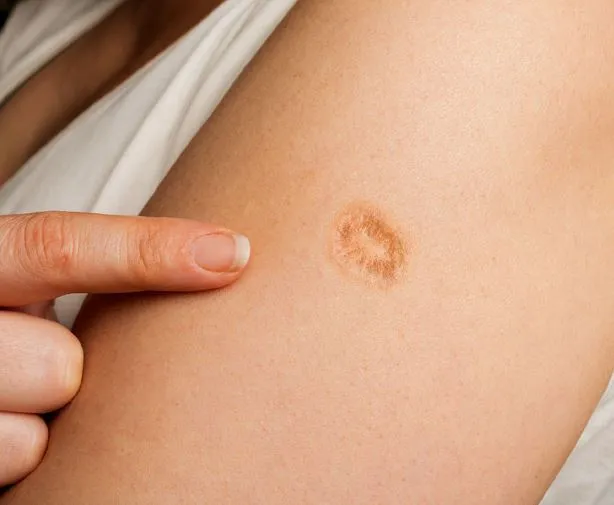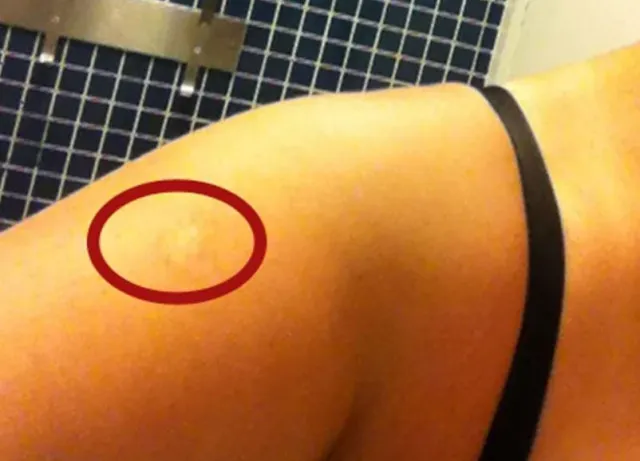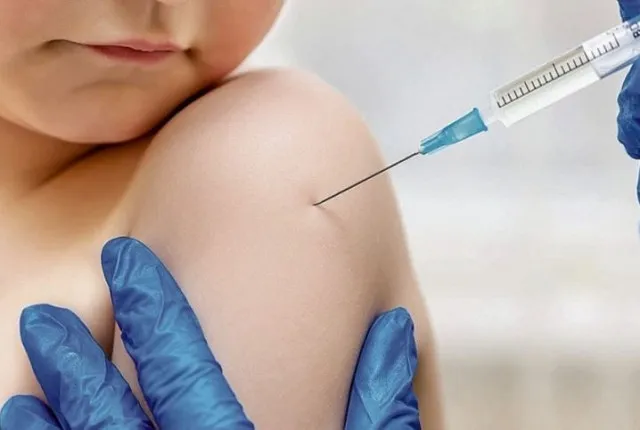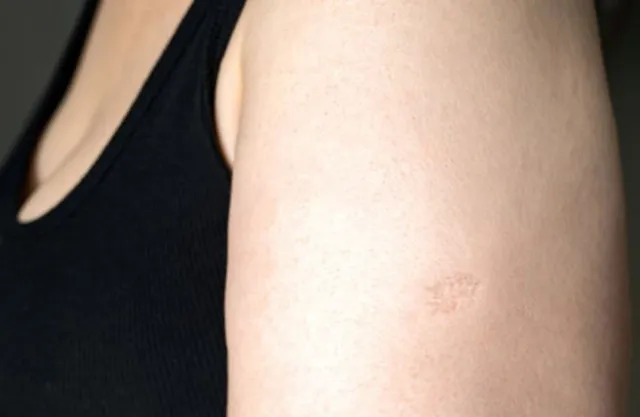Have you had a small scar on your upper left arm and wondered about its real meaning? The truth behind it might surprise you.
Have you ever noticed a small, round scar on someone’s upper left arm? It’s a common mark that many people have, and it’s linked to a significant part of medical history.
Well, a small, round scar on the upper arm is a common mark for many people, a remnant of the smallpox vaccine given widely before the 1970s.

This vaccine used the live Vaccinia virus to build immunity against the dangerous Variola virus, which caused smallpox.
What is the Smallpox Vaccine Scar?
The smallpox vaccine scar is a mark you might have on your upper arm if you were vaccinated against smallpox.
It’s a sign of immunity from a deadly virus that was eradicated by the 1970s.
A smallpox vaccine scar appears as a small mark on your arm.

Typically round in shape, the scar may have uneven edges and might sit slightly lower than the surrounding skin.
Why does the Smallpox Vaccine leave a scar?
The vaccine leaves a scar because it causes a controlled infection in your skin.
This minor infection triggers your immune system to build defenses.
The process results in a small, circular scar that serves as evidence of your immune response.
How dos the Smallpox Vaccine work?
The smallpox vaccine uses a two-pronged needle to introduce the vaccinia virus, not the smallpox virus itself.

This virus, similar to variola, helps your body develop immunity.
After vaccination, a raised, itchy spot forms, followed by a pus-filled blister.
Over time, the blister dries up, leaving a scar after 14 to 21 days.
This scar shows that the vaccine was effective in protecting you from smallpox.
Why some people don’t have a small Smallpox Vaccine scar
If you received a smallpox vaccine but don’t have a scar, the vaccine might not have “taken.”
Healthcare providers check for signs of a successful immune response, like a blister, in the days following vaccination.
If the process fails, you may need a repeat vaccination.
The smallpox vaccine scar serves as a historical reminder of a deadly disease that was eliminated through widespread vaccination efforts.

While the scar is less common today, it serves as proof of a vital moment in medical history.
If you have this scar, it’s a sign of immunity against a disease that once posed a serious threat.